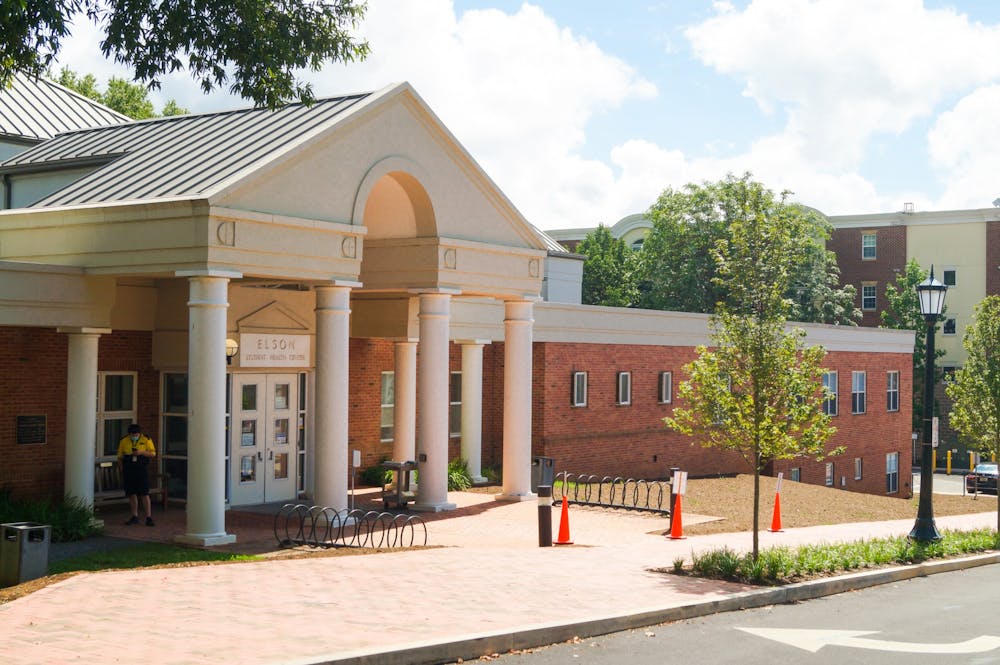Editor’s Note: The following article discusses eating disorders.
For young men and women, the life-altering transition to college life can cause overwhelming feelings of uncertainty, anxiety and loneliness. While college in many ways is an exciting time, it also leaves many students susceptible to mental health issues. One of the most prominent mental health issues seen in college students today is eating disorders. With between 19 and 30 percent of all college-aged women engaging in bulimic behavior and an increase in eating disorders from 7.9 to 25 percent among men over 13 years, this is a serious problem that requires recognition from colleges and universities.
The issue of eating disorders on college campuses has been long-standing. The atmosphere and habits created by college life have made campuses a breeding ground for the development of eating disorders. First, there’s the age-old theory of the “freshman fifteen.” From the moment young men and women step onto college campuses, they are consistently warned about the supposed “risk” that they will gain weight and are encouraged to avoid doing so at all costs. However, research shows that, on average, college students gain between 2.5 to 3.5 pounds in their first year of college. Additionally, the myth of the “freshman fifteen” displays the villainization of gaining weight in college. Weight fluctuations are a natural part of life, and perpetuating this baseless theory scares college students into unhealthy eating habits and a distorted view of what it means to gain weight. Also, due to the availability of social comparison through platforms like Instagram and Snapchat, college-aged men and women feel pressure to conform to societal norms of health and beauty. These sentiments are also occasionally furthered through popular forms of making friends in college — including fraternity and sorority life. For women, in particular, joining a sorority has been associated with higher rates of low self-esteem, body dissatisfaction and eating disorders.
Furthermore, the University perpetuates and emphasizes certain aspects of college life that are detrimental to students’ mental health in regards to eating habits. As an institution where the student body works hard to earn good grades, gain membership in selective clubs, get into competitive majors and obtain impressive internships, there seems to be an overarching strive for perfection and a need for control. When arriving at college, however, students have a lack of control when it comes to their social life, making new friends and even at times the option of what to eat. With the ever-changing, unpredictable atmosphere of college life, many students look to other aspects of their life to control. This can therefore lead to a fixation on eating habits. Also, over the years, there has been a normalization of eating disorder triggering language. From skipping meals to get drunk faster at parties to the common phrase of “pull trig,” the everyday party language is contributing to a toxic culture of normalizing eating disorders.
With all of this being said, the University needs to do more. While there are programs within CAPS that focus on diagnosing and providing short-term solutions to eating disorders, in many cases eating disorders need more comprehensive and long-term treatment. Additionally, while CAPS provides a guide to finding longer term care, it is difficult for students to access non-University mental health resources — whether due to lack of transportation or health insurance coverage.
Nevertheless, there are extra precautions and resources that can be implemented to destigmatize and aid students who are struggling with eating disorders. First, the University should highlight non-CAPS related mental health resources — such as the Madison House helpline — and create other non-emergency peer support hotline that allow for other forms of communication like texting — which can be aided by online resources such as Lean On Me. The hotline would allow students to reach out to their peers if they were worried about engaging in dangerous or unhealthy eating habits or simply in need of someone to talk to before, during and even after eating a meal. Additionally, the University should look into doing regular eating disorder screenings — surveys or questionnaires that gather information on eating habits and determine the prevalence of eating disorders on Grounds. These screenings are not only cost-effective but would provide the University a better understanding of the mental health of its students and support students with resources to battle unhealthy eating habits.
Getting help battling mental health issues or unhealthy eating habits can seem incredibly daunting, and the University needs to do more. Not only must the University recognize this crisis which runs rampant on Grounds, but they must also, in turn, provide additional support and resources for students.
Evelyn Duross is a Opinion Columnist for The Cavalier Daily. She can be reached at opinion@cavalierdaily.com.
The opinions expressed in this column are not necessarily those of The Cavalier Daily. Columns represent the views of the authors alone.







